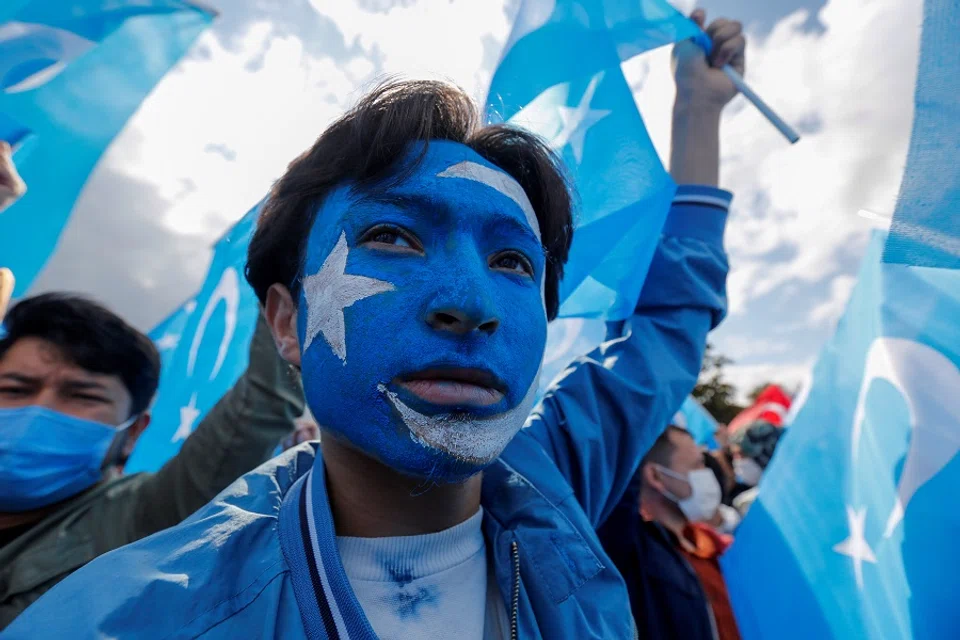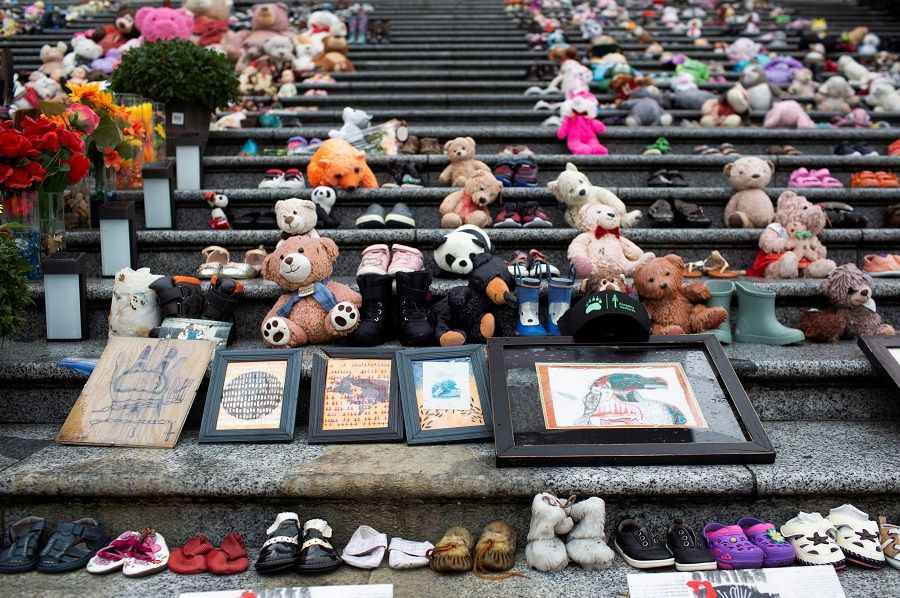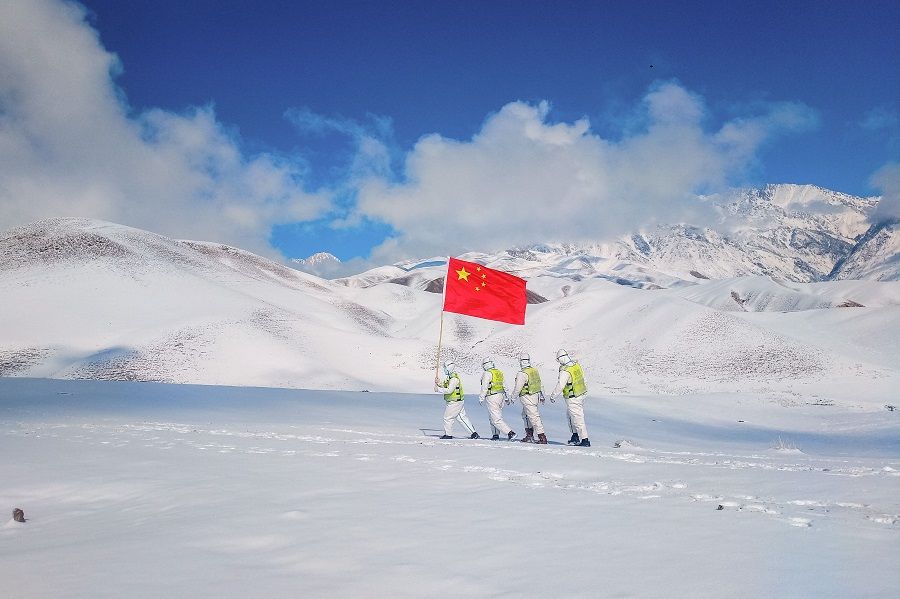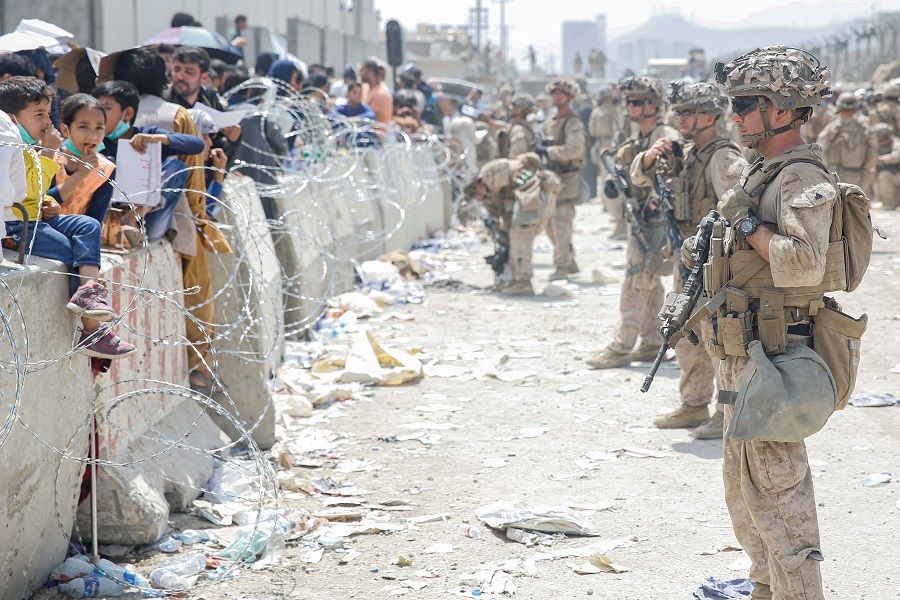The Xinjiang problem: Can Washington be the defender of all?

Donning shoes with the words "Free Uyghur" emblazoned on them in protest, the NBA star Enes Kanter is the latest high-profile sports figure to berate China over Xinjiang. But the West's show of solidarity with the Uighurs may yet become collateral damage of the US's broader geopolitical calculations.
The litany of accusations against China's treatment of the Uighurs has grown from violation of religious rights and the use of forced labour, to mass detention in concentration camps and cultural genocide. And the punitive measures imposed upon China by the West range from sanctioning Chinese officials, banning the import of Xinjiang cotton, and the call to boycott the upcoming Winter Olympics in Beijing. The ramping up of pressure against China on Xinjiang is not without controversy.
Beijing has long been accused of attempting to silence its critics in universities in the West. But in Australia and American campuses, McCarthyism has returned and any perceived support of China could invite unwanted scrutiny.
A dearth of information
Admittedly, authoritarian China's tight-fisted governance has impeded a more open understanding of the crisis in Xinjiang. Denied access, the world has to rely on an array of covert intelligence to assess the Uighurs' plight. But the reliability of some of these sources has come into question, which led Jane Golley of Australia National University (ANU) to raise concern about potential inaccuracies that could compromise the international community's criticism of China. Golley's warning was dismissed and she later stepped down as director of the Centre on China in the World at ANU.
Academic freedom is a casualty of an increasingly tense US-China rivalry. Beijing has long been accused of attempting to silence its critics in universities in the West. But in Australia and American campuses, McCarthyism has returned and any perceived support of China could invite unwanted scrutiny.

In February, Canadian lawmakers voted to condemn China's mistreatment of its Uighur minority as a genocide. Aside from the fact that the evidence supporting the charges is contentious, the Canadian accusation against China is also complicated by the West's own tainted history.
In June, Canadians were shocked by the bleak discovery of unmarked mass graves of indigenous children in Saskatchewan. The discovery only adds to what is a known historic tragedy, the decimation of indigenous civilisations across the Americas by the European conquest.
Looking at the issue as moral equals
Surely, no human civilisation is faultless; all are tainted by transgressions. Still, the West's moral failings do not excuse China's wrongdoings, if those allegations in Xinjiang are proven correct. In fact, the global community must continue to hold each other accountable. But we ought to do so with contrition and as moral equals, or more precisely, as equally fallible human beings.
With national monuments and annual commemorations, Canadians and Americans are acknowledging and grappling with the dark history that overshadowed the founding of their respective nationhood.

That said, when confronting China, the West's sense of moral contrition has given way to moral grandstanding. The current US-China rivalry, for instance, has been framed as a civilisational clash between good versus evil. Despite its many shortcomings, America continues to regard itself as the only beacon of light to the world.
Muslim states have mostly chosen to distance themselves from the US-led campaign to punish China.
Muslim states slow to condemn China
In the Muslim world, the Xinjiang crisis has riled the general population. In Kuala Lumpur, grassroots activists have taken to the streets to protest outside the China embassy. Putrajaya had lodged official complaints to Beijing, expressing the Malaysian government's concerns.
Even so, Muslim states have mostly chosen to distance themselves from the US-led campaign to punish China.
One reason is that countries like Malaysia have become ever more wedded into China's economic web, and any undue animosity towards Beijing could risk jeopardising the country's broader national interest, that is its economic well-being.
Another factor is the lingering mistrust between Islam and the West. After all, the Muslim community bore the brunt of America's post-9/11 wrath and many still bear the scares of the US "war on terror". A symbol of injustice and abuse, the humiliating and traumatic fallout from the Guantanamo Bay detention camp, for instance, is most profoundly felt by the Muslim world.

With the pivot to Asia, the US hopes to bring the "war on terror" to a close and to open a new front, that is to confront the "existential threats" posed by a rising China. And by championing the Uighurs' cause, Washington seeks to redeem itself as the defender of all, persecuted Muslim minorities included.
But the Muslim world remains sceptical about the US's motivations. If the Uighurs are "freedom fighters", what about the Palestinians and their seemingly futile quest for statehood?
The unfortunate truth is that both the Palestinians and Uighurs are pawns in the US's grand strategy to retain global dominance.
Pawns in a larger grand strategy
The unfortunate truth is that both the Palestinians and Uighurs are pawns in the US's grand strategy to retain global dominance. In Xinjiang, Washington sees China's Achilles heel to be exploited in order to stifle the Asian giant's rise.
Sadly, a day will come when the pieces on the chessboard will shift in such a way that Xinjiang no longer serves America's strategic interest. And like the Kurds and the Afghans before them, the Uighurs could be left forsaken.

Regrettably, the Uighurs may not be the only collateral damage in this big power contestation. Across the region, countries like Malaysia are under pressure to take sides and many are reluctant to do so for fear of abandonment.
The Uighurs deserve a better fate. The international community can and should hold China accountable. But the US exploitation of the Xinjiang crisis as a means to contain China and to maintain its global dominance is counterproductive.
The hasty withdrawal from Afghanistan was the latest debacle that eroded the US's trustworthiness as the defender of the oppressed. To restore its credibility, America must discard its sense of moral superiority and work together with the rest, China specifically, in advancing the well-being of all, including the Uighurs in Xinjiang.
Related: Will the West boycott Beijing's Winter Olympics over Xinjiang? | Is there a genocide in Xinjiang? | Hong Kong commentator: Xinjiang's cotton production figures debunk the myth of forced labour | BBC vs CCTV's Xinjiang: Which is the real Xinjiang? | The fight that never ends: Why are China and the West now fighting over Xinjiang cotton? | Xinjiang - the new Palestinian issue? | Chinese academic: Why the US ignores its own human rights issues and accuses others instead
